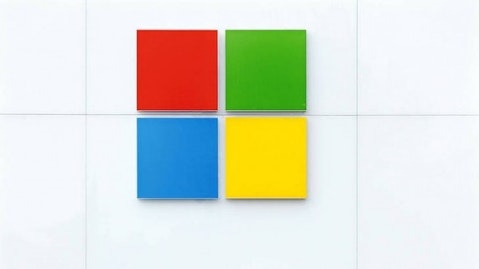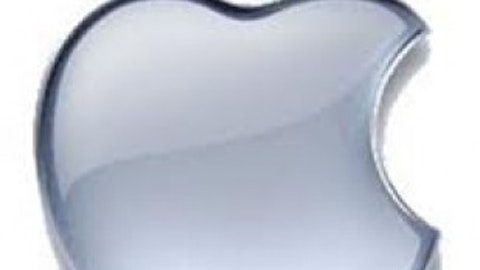Microsoft Corporation (NASDAQ:MSFT) has been in the news for all the right reasons recently. The company launched a series of updates to its flagship products, including an upgrade for the Xbox game console line, the Xbox One. The “Windows” maker also launched Microsoft Office 365 Home Premium, an upgrade to its Office 365 service meant to act as a consumer follow-up to Office 2010. The launch of Office 365 Home Premium broke every record but one, with 1 million Home Premium subscriptions reported within the first 100 days on sale. Microsoft Corporation (NASDAQ:MSFT) claims that it is reporting at least one subscription per second every day, translating to about 86,400 subscriptions every 24 hours. With the subscriptions valued at $99 per year, the baseline value per day is approximately $8.5 million.
There is also a non-subscription local edition of Office available as well, though the company has yet to disclose the number of copies sold to date. This is likely to lower the overall number of premium subscriptions, which are renewable on a monthly or annual basis. Microsoft Corporation (NASDAQ:MSFT) is trying to shift from a packaged products system to more of a service provision for customers of its Office programs. The company will also provide ongoing updates, upgrades and online support for the subscription-based edition, making likely to woo more subscribers. The new Office 365 also has a cloud portal through SkyDrive, allowing subscribers to save documents online and access other cloud services as well.
Microsoft Corporation (NASDAQ:MSFT) also reported a strong quarter, beating analyst estimates. The company reported revenue of $20.5 billion in the third quarter of 2013, up from $17.4 billion last year and representing an 8% increase. Windows revenue was somewhat flat, but after adding deferred revenues from Windows 8 upgrades the figure was up 23% from last year. Microsoft’s profits came in at $6.06 billion, up from $5.7 billion reported in the third quarter of 2012.
Microsoft Corporation (NASDAQ:MSFT) is by far the dominant force in PC operating systems, with Apple Inc. (NASDAQ:AAPL)’s Mac OS X holding less than 10% of market share. There are also other alternatives for a PC OS, including Google Inc (NASDAQ:GOOG)’s Chrome OS, and Linux desktop distributions, among others.
Statistically, despite holding just under 10% of market share, Apple’s Mac OS X is the main rival to Windows flagship operating systems, which include Windows 7, 8, XP, and an upcoming update to Windows 8 known as Windows 8.1. Apple Inc. (NASDAQ:AAPL) does engage in the direct selling of computers as well, while Microsoft sells its various versions of Windows to computer manufacturers like Dell Inc. (NASDAQ:DELL), Hewlett-Packard Company (NYSE:HPQ) and Lenovo Group Limited (PINK:LNVGY), among others. OS X accounts for about 7% of market share, since it is only used only on Mac computers, while the other operating systems account for just 2%. Nonetheless, when it comes to the mobile platforms the tables are turned, with Apple’s iOS holding about 17% market share, compared to Windows Phone’s 3.2%. That said, it is Google Inc (NASDAQ:GOOG)’s Android that carries the day here with about 75% of the total market.
Changing the game
There are other factors making Microsoft Corporation (NASDAQ:MSFT) stand out as the technology stock to watch in 2013. Its recent launch of a new game console trumps Sony Corporation (ADR) (NYSE:SNE)’s PlayStation 4 as well as Nintendo Co., Ltd (PINK:NTDOY)’s Wii U. And while Microsoft and Sony Corporation (ADR) (NYSE:SNE) have yet to release their new machines, Nintendo Co., Ltd (PINK:NTDOY)’s console shipped in November last year. Video game makers have already made full use of the Wii U, which, according to reviews, lags well behind Microsoft Corporation (NASDAQ:MSFT)’s Xbox One.
The Xbox One will definitely change the video game experience. It is synchronized with TV and activated to track viewers’ habits, rewarding them for viewing ads. This provides an exemplary future with so much potential going forward. If Microsoft wanted to be greedy enough, they could even monetize this feature. The point of an Xbox is to “bring the things you love to life,” according to an interview with Don Mattrick, Microsoft Corporation (NASDAQ:MSFT)’s Chief of Interactive Entertainment, outside the Xbox One tent. “You love entertainment. You love TV. You love games. This is going to be the premium experience for enjoying those things.”
Milking Google?
On April 30, Geoff Duncan published an article on Digital Trends revealing how Microsoft has been benefiting from the sale of Android devices. Apparently, Microsoft receives more income from Android than Google Inc (NASDAQ:GOOG) does, despite Google being the smartphone software’s creator. This is simply because Google offers the software as an open-source product, limiting the amount of revenue it could generate. On the other hand, it is reported that Android phone makers use a lot of Microsoft’s patented technology, which results in them paying royalties to the giant software maker. Reports suggest that Microsoft received nearly $800 million in 2012 in Android-related royalties. Trefis reports that Microsoft receives approximately $12.50 per Android phone sold by Samsung and $10 for each that is sold by HTC. Android commands 75% of market share in terms of smartphone shipments as per the numbers reported by IDC in the most recent quarter when 162 million Android phones were shipped.
According to reports, Microsoft Corporation (NASDAQ:MSFT) has already inked deals with approximately 65% of all Android phone manufacturers. More importantly, the company has signed agreements with Samsung and HTC, Android’s leading flagship phone manufacturers. The two companies account for at least 130 million units shipped during the quarter, with Samsung accounting for the majority of shipments. Nonetheless, a flat multiple would translate to a revenue of no less than $1.3 billion, or at least $5 billion by the end of this year, assuming that the numbers do not change much in the next three quarters. It is such a shame that Google Inc (NASDAQ:GOOG), the maker of the Android platform, can afford to see so much money slip by and go to one of its fiercest rivals.
The bottom line
With more Android devices set to be sold this year (IDC), this provides an upside for Microsoft based on the revenue per device sold as revealed. This will also help in cushioning against the losses reported from some of its other business units, including its Surface tablets and the company’s partnership with Nokia Corporation (ADR) (NYSE:NOK).
Microsoft Corporation (NASDAQ:MSFT)’s major threat emanates from the paradigm shift in usage of PC computers to mobile devices, like tablets and smartphones. This threatens the PC industry as a whole, and the windows maker will not be spared alongside Apple Inc. (NASDAQ:AAPL).
This is also likely to affect the long-term future of the new subscription-based edition of Microsoft Office 365 Home Premium. However, in this and the next couple of years, the new Office edition guarantees increased returns and a possibility of building a strong bond with customers. Furthermore, the launch of the Xbox One game console promises more than just an awesome playing experience. There is a potential for player monetization, which could boost ad revenues. This is definitely the technology stock to watch in 2013.
Nicholas Kitonyi has no position in any stocks mentioned. The Motley Fool recommends Apple and Google Inc (NASDAQ:GOOG). The Motley Fool owns shares of Apple Inc. (NASDAQ:AAPL), Google, and Microsoft.
The article Microsoft: The Tech Play of 2013? originally appeared on Fool.com.
Nicholas is a member of The Motley Fool Blog Network — entries represent the personal opinion of the blogger and are not formally edited.
Copyright © 1995 – 2013 The Motley Fool, LLC. All rights reserved. The Motley Fool has a disclosure policy.






